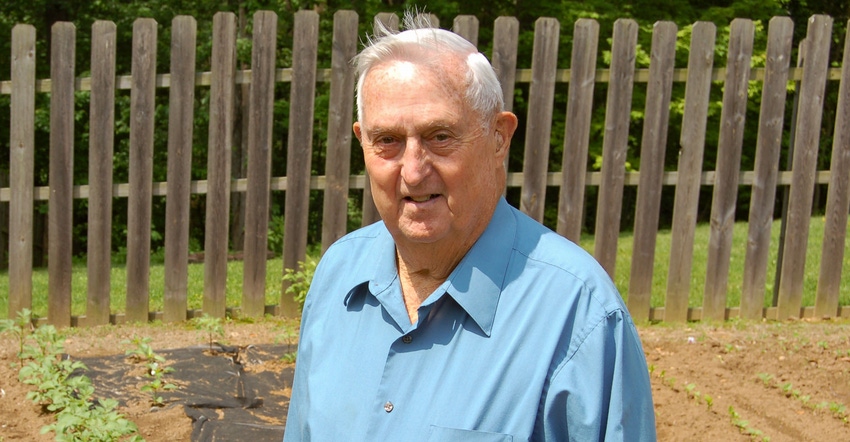April 4, 2022

Words from the late Wayne Dillman should be printed where Hoosiers see them often. “Sometimes the most important things lobbyists do for you aren’t things that get enacted, but things that get defeated.”
Dillman, Martinsville, Ind., lobbied first for Indiana Farmers Union and later for Indiana Farm Bureau. He was recognized as an Honorary Indiana Prairie Farmer Master Farmer in 2011, largely for his tireless efforts in representing agriculture in the Legislature. He was always an advocate for property rights.
Dillman would be proud of what Indiana Farm Bureau accomplished in 2022. The Legislature defeated legislation that would have muddied the waters regarding property rights related to what you own below the surface.
“We couldn’t have done it without our members and their grassroots support,” insists Jeff Cummins, associate director of policy engagement for INFB. “What members say carries lots of weight with legislators, and their message certainly helped open eyes.”
Understanding the threat
What makes their feat more incredible is that at first glance, the legislation seems both complicated and innocuous. The tie to agriculture doesn’t jump off the page. Senate Bill 265 sought to change legislation passed in 2019 that allowed a company in west-central Indiana to carry out a pilot project involving carbon sequestration deep below the surface.
Carbon sequestration is becoming a household term. Companies pay farmers for sequestering, or tying up, carbon in the soil, addressing increasing levels of carbon dioxide in the atmosphere. However, these efforts usually involve no-tilling and growing cover crops.
Instead, this project involved storing carbon several thousand feet below the surface in pore space created naturally or by extraction of oil or coal. The original intent when Wabash Valley Resources sought approval for the pilot project in 2019 was storing carbon underground and producing ammonia, a product farmers could use. However, by 2022, the intent changed. The company wants to produce hydrogen and fund its initial efforts through various federal grants.
“What they really sought was liability protection against civil and nuisance suits by landowners if anything became a problem in the future because carbon was stored underground,” Cummins says. “The real issue was making the point that if you own land, you own the space under the surface, too. Farmers have been paid for mineral rights for decades. Granting protection from future liability for something that might happen below your land would have set a very dangerous precedent.”
Good resolution
Ironically, two other companies, working together — Indiana’s own CountryMark and BP — also approached authorities about possible future endeavors that might store carbon below the surface of farmland.
“Their approach was 180 degrees different,” Cummins says. “They don’t have a project now but wanted to set the stage for the future. And they wanted to do it right, contacting landowners who might be impacted in advance, and working with them fairly.”
In the end, the Senate bill was defeated, and language that would set the stage for carbon sequestration below the surface, handled correctly, passed as House Bill 1209.
Many of you may not have even known this battle was waged during the legislative session. The next time you see an INFB member who weighed in when it counted, be sure to say thank you.
Comments? Email [email protected].
You May Also Like




